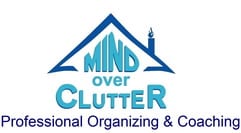Organizing to better manage your time and stress
April Miller of April Miller Professional Organizing once described life as having a plate of food. Even when it is full we keep putting more food on top.
Let’s think about stress, do you
- feel overwhelmed by not being able to shut your mind down
- feel anxious that there is too much to handle
- feel frustrated because you don’t have control
Think about how you feel in different situations and why you feel that way. Once you can determine what problems cause your feelings of stress you can start to solve them.
Balance Wheel
Clare Kumar of Streamlife Ltd. has developed a Lifetime Management Wheel. She has divided time into 6 areas:
- Play
- Purpose – work and volunteering
- Health – mental physical and spiritual
- Lifestyle
- Relationships
- Development – personal growth and learning
She says to “note your level of satisfaction with each area of your life by giving it a rating of 1 to 10 with 10 being your ideal.”
Now you can see which areas of your life need some attention. You can tie some of your feelings of stress to certain areas of your life.
Productivity – another way of managing your time
1. Take care of yourself
If you are healthy and happy you will be more motivated and productive. I walk each morning for an hour. It allows me to start the day with no questions or demands on my time. I get physical activity and time to reflect. I can start my day ready for action, whatever that may be. What do you do the take care of yourself?
If you are healthy and happy you will be more motivated and productive Share on X2. Establish repeatable routines and systems.
This helps you to automate things that need to be completed so they become a habit. I have a “networking bag”. It has everything I need for going to business meetings, business cards, brochures, marketing material, notepads, pens, and cash. I can leave the office quickly for meetings not forgetting anything and not spending a lot of time looking for items I need to take. I have a two month meal plan. I know what groceries I need for the week and what is being cooked for supper. Then I repeat the plan 6 times, that is a year. You only have to eat any one item 6 times in 365 days. Routines and systems will help you to feel in control and have less on your mind reducing your stress.
3. Slow down to become more productive.
About 5% of the population can multitask successfully. Multitasking slows down your productivity because moving from unfinished task to unfinished task means you need to look back to see where you left off on the previous task and where to start on the new task and all those seconds add up to minutes making you less productive. Finish one task completely and then move on to the next. There is relief and satisfaction in completing a task reducing anxiety and stress. You also need time to think and reflect on the work you are doing so you can be more intentional and less reactive. You’re in control and less overwhelmed.
4. Work with your personality not against it.
Discover where you are most productive. It might be in different spaces for different tasks. When I write I like to be in the kitchen. What time of day do you work best? Do you like it quiet or prefer to have some background noise? There are articles that suggest that if you are trying to brainstorm ideas you have to leave your office and that physical activity helps in brainstorming activities. I have found that 90-15-90-30-90 works for me. I concentrate on one task for 90 minutes and then do something completely different for 15 minutes. Then 90 minutes for working on the same task or a new one and 30 minutes doing something completely different and then a 90 minute work session. Don’t cheat on the breaks. The breaks help you to remain energized and focused throughout the day.
Fill your plate with only as much as you can bite off and chew. Enjoy each morsel and spend time ruminating over the experience. Reflect on what you are doing and what you could be doing more productively.
Send me your tip for increasing your productivity
 Julie Stobbe is a Trained Professional Organizer and Lifestyle Organizing Coach who brings happiness to homes and organization to offices, virtually using Zoom. She has been working with clients since 2006 to provide customized organizing solutions to suit their individual needs and situation. She uses her love of teaching to reduce clutter, in your home, office, mind and time. She guides and supports you to be accountable for your time, to complete projects and reach your goals. If you’re in a difficult transition Julie can coach you to break-free of emotional clutter constraining you from living life on your terms. Online courses are available to help instruct, coach and support your organizing projects. Get started by downloading Tips for Reorganizing 9 Rooms.
Julie Stobbe is a Trained Professional Organizer and Lifestyle Organizing Coach who brings happiness to homes and organization to offices, virtually using Zoom. She has been working with clients since 2006 to provide customized organizing solutions to suit their individual needs and situation. She uses her love of teaching to reduce clutter, in your home, office, mind and time. She guides and supports you to be accountable for your time, to complete projects and reach your goals. If you’re in a difficult transition Julie can coach you to break-free of emotional clutter constraining you from living life on your terms. Online courses are available to help instruct, coach and support your organizing projects. Get started by downloading Tips for Reorganizing 9 Rooms.
Contact her at julie@mindoverclutter.ca
Click here to learn more about her online course Create an Organized Home.



I love the “slow down” tip. I tend to move at warp speed, and often that means I am not fully present in the moment or the current activity. My tip is to track your progress on tasks throughout the day. It feels empowering to be able to see that things are being accomplished, and I track where I am on each task (finished, cancelled, rescheduled, waiting, etc.)
Tracking is a great idea. It helps you know exactly what stage every tasks is at, at a glance. At the end of everyday I mentally run through what I have accomplished including big and small tasks, completed and in progress tasks. It is really helpful for me because some days I feel like I did nothing and then I realize a lot was accomplished and I end the day with a smile.
I also start my day with a walk. It helps me process my thoughts and to organize my schedule (other than appointments) for the day. I also track my progress – I am a paper/pencil person and love checking off the tasks I have completed. I make notes as to where I left off on other tasks so that it’s easier to resume.
I find it amazing how well my day goes after a walk, sometimes I just have time to myself, I solve problems or reflect on “the next step”.
I love repeatable routines. It really helps me manage my time and stress. Thanks for sharing these helpful tips.
This January I set up a method for keeping track of where I had posted my blogs. At time I may have 4 or 5 items that I am posting to websites and social media sites. It is so easy for me now that I love doing it instead of not doing it. Repeatable routines are great, I agree
Love your tips. I love the idea of having a routine and plan for dinners. I think even planning meals for the week can be helpful.
I have recently seen the metaphor of the rocks in the jar which basically says if you don’t deal with the important things and you keep filling up with the little things you never really get to your important goals.
I have seen the jar and the rock metaphor too. It is a very good visual thanks for reminding me of it. I might use it in my next presentation.
I admire you for walking an hour a day and for having a two-month repeatable meal plan. That’s fantastic! Go, Julie! I like the idea of having routines, but I also like to have some float time or white space where time can just unfold. I need a combination of both to feel less stressed and more productive.
I like float time too but I think I get more of it because I have “automated” some of my routines.
I love April’s analogy! It basically says that we should select our activities as from an a la carte menu, not as if life were an all-you-can-eat buffet. I’ve never thought of it that way before, but it’s definitely true that there’s only so much of us to go around!
I like how you explained April’s analogy. It gives a great visual. I will quote you in the future.
I walk at night — it allows me to make sense of the day and de-stress. (There’s no scientific backing, but 99% of the time, I have cheerful dreams.) And I absolutely agree about the importance of ritualized routines and systems. As long as I stick to my systems, things go smoothly and stress stays at bay.
In the summer I sometimes walk at night. I love the warm breeze and stars and it is a great de-stresser. When I feel stressed about something that is not getting done I have now learned to look at that task and either decide I don’t need to do it or develop a system to get it done. You’re right that system reduces the stress I was feeling.